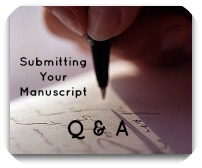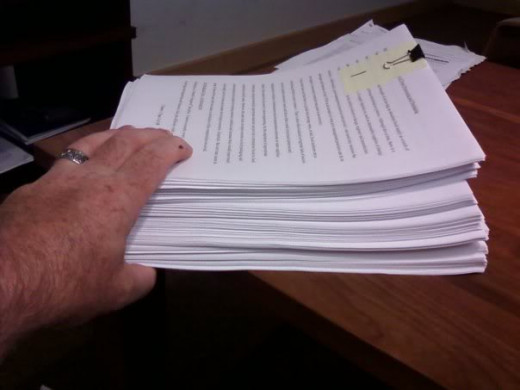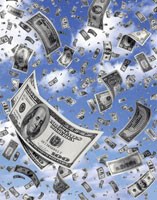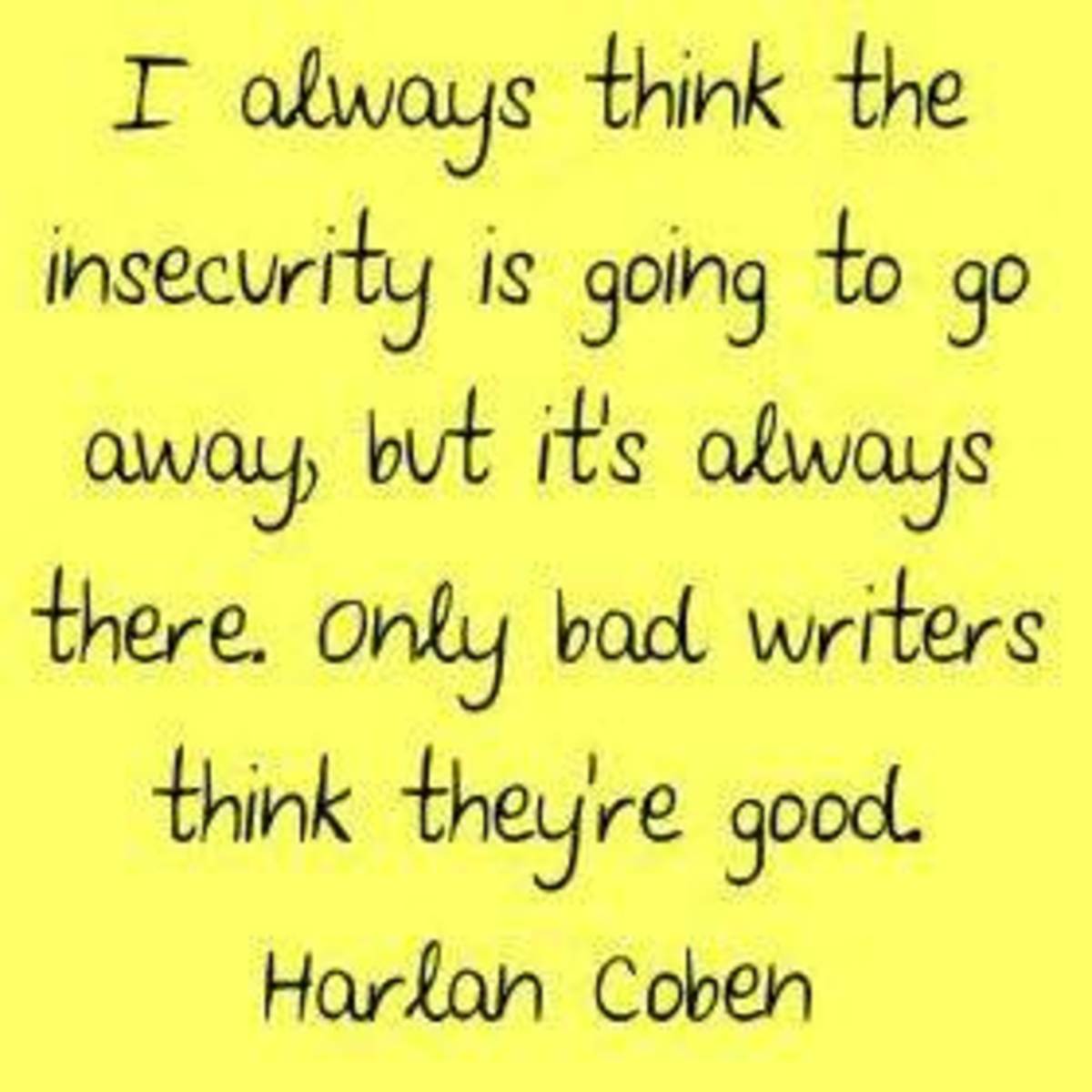- HubPages»
- Books, Literature, and Writing»
- How to Write»
- How to Get Published
Submitting Your Manuscript Q&A

Frequently Asked Questions About First Manuscripts
This hub in response to some of the comments on this question regarding the publishing process, concerns I'd once had myself. It seems that for a lot of us, when preparing a manuscript that we wish to have published, there are several questions we ask ourselves. Questions such as, how long should my book be? Do I have to finish the whole thing or can I submit an idea and an outline? Who do I send my manuscript to? When will I get an answer? Will I get paid up front if I get published?
All of these questions and more echo through the minds of fledgling writers. Publishing for the first time can be scary, confusing and frustrating. This article, I hope, will address some of the concerns you may have and help you to put together a good plan of action for getting published.
Let me reiterate, this hub deals with questions associated with traditional publishing- publishing through a company, not self publishing.

"When asked, 'How do you write?' I invariably answer, 'one word at a time.'"
-Stephen King
Do I Have to Finish The Whole Book First?
A: The simple answer is yes. You should submit a completed manuscript that has been at least edited for spelling and grammar. And soon, I will include a link here to a hub that will explain what your manuscript will need to include.
The extended answer is still yes, assuming you are a new author. If you have published before, especially with the publisher you are planning on submitting to, then they will know your work and an outline or shorter sample of your current work may suffice. If your previous publishing endeavors were of the self publishing variety, an example of the previously published work and an analysis of the book's sales and reviews accompanied by a sample of your new manuscript and a plot summary may be enough to get the green light you are looking for.
While it isn't unheard of for a new author to receive a publishing deal with only a partially finished manuscript, it is still highly recommended that the one you submit is complete. This will allow the publisher or agent to not only get a taste of your work but also see that you can finish something. Also, if they like what they see, they don't have to sit back and wait for you to complete your novel before it can be published and you don't have to finish your novel under a looming deadline.
Length by # of pages
Twilight by Stephanie Meyer : 544 pages
The Great Gatsby by F. Scott Fitzgerald : 160 pages
The Hobbit by J.R.R Tolkien : 322 pages
Gone With the Wind by Margaret Mitchell : 960 pages
To Kill a Mockingbird by Harper Lee : 336 pages
The Grapes of Wrath by John Steinbeck : 468 pages
Catcher in the Rye by J.D. Salinger : 224 pages
The Hunger Games by Suzanne Collins : 387 pages
How Long should My Manuscript Be?
A: Simple answer; the average novel falls somewhere between 50,000 and 100,000 words. (Approximately 200 to 400 pages. But word count is a better judge of length and is what most publishers go by.)
Slightly longer answer; it depends on a few things. Some would argue that your novel should be as many words or pages as it takes to tell your story, no more-no less.While that may be true to some extent, if it takes you 250,000 words to tell a story that your reader lost interest in halfway through, maybe you should think about paring it down some... The ultimate goal is an end product that keeps a reader engaged and hungry for more all the way to the end.
Different genres have different length expectations. Fantasy novels usually fall between 80,000-120,000 words while Young adult fiction may be 40,000 words and up. The best way to figure out average word count for the genre you are wanting to write within is to go to the book store or library (or your bookshelf at home!) and pull out a few books in the genre. Count how many words are in the first or second line and then multiply that by number of lines on the page. Then multiply that number by how many pages the book is. That will give you an idea of what to shoot for.
There is no magic number for length of a manuscript. Some agents/publishers prefer shorter books while others won't even glance at a manuscript that is less than 100,00 words. The unfortunate part is that we just never know. So, tell your story- have the beginning, middle and end and make sure your settings are clear and your characters are well rounded and when you finish, see where you hit in the average word length. If you feel you are too far off the grid, either too short or too long, then do another edit and see where you could benefit from adding a little something or taking something out. If you were off the scale and don't care because you like your manuscript and can't find anything you could change without hurting the integrity of your story, then go with it! Remember, it's your story and you have to be happy with it, too!
What does a literary agent do anyway?
Finding an Agent
Submitting to Publishers
Finding a Publisher
"And will you succeed? Yes indeed, yes indeed! Ninety-eight and three-quarters percent guaranteed!"
— Dr. Seuss
Other Hubs in This Series
- 3 Tips to Help You Become a Successful Writer
There are many tips and tricks that will help you hone your writing skills. This hub deals with three: support, critique and style - How to Submit a Manuscript - the Step by Step of Creating a Query Letter
What does a manuscript need to be taken seriously by potential publishers? How do you submit your work to a publisher or literary agent? This hub will answer your questions.
What Do I Do With My Finished Work?
A: Submit that sucker! (Preferably using a properly written Query Letter!)
The first thing you will need to decide, is whether or not you want to use the services of an agent. About 80% of the books publishing houses publish are done so through an agent. The role of a literary agent is to submit your manuscript to the publishing houses on your behalf. They typically have a better understanding of what each house and their editors are looking for. They have contacts the average person does not and may even know what types of new books a particular house is looking to branch out into and whether or not they are interested in new authors. Your agent will do all of the negotiating over payments and contract and will know how to get you the best deal. All in all, working with an agent could save you, as the author, a little time and frustration.
A good way to find the name of an agent you may like to work with, is to check out the thank you page of some of your favorite authors. Often times, an author will thank an outstanding agent or editor.
However, if you would prefer to work without an agent, you still have plenty of chances to find a publisher willing to work with an unknown author. By foregoing an agent, you won't have to pay another person for their services. And, as agents are often bogged down with many queries from potential clients, you wouldn't have to wait for an agent to get to your manuscript.
Without an agent, you will be sending your manuscript directly to the publishing houses, yourself. You will be the one negotiating on your own behalf. It is up to you whether you prefer this option.
Whether you choose to submit to an agent or a publisher, your steps at first will be the same. You'll be sending out copies of a query letter or your completed manuscripts to a handful of either publishing agents or publishing houses. To find the names and mailing addresses you will need for these queries, check out the boxes to the right of this text for some resources.
Your best bet, no matter who you choose to submit to, will be to use a query letter instead of sending out the entire manuscript. However, check out the submission guidelines for whomever you are hoping to work with; query letters may be preferred by some and disliked by others. Some may want to see the first few pages of your book along with the query while others may want only the query itself. More information on the query letter can be found here.
The best advice I can give you for when you reach this stages is be prepared for some rejection. Even the very best of writers have received rejection letters from publishers and/or literary agents. Some have even received several!
Will you choose to use a literary agent or submit to publishers directly?

"Writing a novel is like driving a car at night. You can only see as far as your headlights, but you can make the whole trip that way."
- E. L. Doctorow

Famous Authors Got Rejected Too!
Stephanie Meyer's first novel, Twilight, was rejected fourteen times before it was finally picked up.
Chicken Soup for the Soul was rejected 33 times.
Kon-Tiki was rejected 20 times before getting published.
Stephen King's novel, Carrie, was rejected 30 times.
The novel, Gone With the Wind, was rejected 38 times.
What Should I Expect...
This question is a fairly open-ended one. You may be adding "...to earn?" to the end of that sentence. Or, you may be thinking "...to hear from the publisher/agent I sent my manuscript to?"
A: It's almost impossible to say for sure but I can give you an idea.
As far as money is concerned...
We all have big dreams of finding a huge check in the mail one day from a publisher who is just dying to make us a published author. We imagine shelves in bookstores filled with our title and book signings with people lined up out the door just to see us. But, that's not what will likely happen, unfortunately.
In reality, if you do sell your first manuscript (And let me be the first to say Congratulations!!!) and happen to get an advance from the publisher, it probably won't be for as much as you'd hoped. I hat to say it, but take whatever number you imagined in your head and subtract a few zero's and that is probably a more accurate amount.
What are advances, exactly? Advances are an amount of money paid to an author on the expectation that their book will sell. A publisher is only willing to pay an advance that is not more than what they plan to earn through selling your book. And, on top of that, if you do get an advance, you won't receive any royalty payments on top of that amount until your advance has been covered.
For example: If you receive an advance of $5,000 before your book is published, you won't get any royalty checks in the mail until your portion (not the total sales but the amount you would earn per book-which could be something like 10% ) of the sales has topped that initial $5,000. Depending on the amount of your advance, getting royalty payments from your book could take years. Of course, I remind you that each and every book and deal and experience are different.
If you are wondering what to expect from the publishers and/or agents you queried...
The answer would be, expect to wait and expect some bad news along the way. Just as you have not liked every book or story you have ever read, publishers, editors and literary agents don't either. You may find a form letter in your mailbox telling you, simply, that your manuscript was rejected or you may get a personalized individual response explaining the how, when and why you were rejected. No matter how they come, rejections will come. Prepare yourself as best you can because rejection can be a hard hit to the ego. No matter how humble we may think ourselves to be, being rejected on any level can knock us down. It is up to us to get back up again and send that manuscript we poured our blood, sweat and tears into day after day after day, back out into the scary world of yea or nay-ers.
And, hopefully, one day you'll open your mailbox to find the one letter that means more than all the others...The one that tells you you're going to be published!
"Get it down. Take chances. It may be bad, but it’s the only way you can do anything really good."
- William Faulkner
And So...
Writing a book is not an easy task. It takes time, patience, creativity and desire. It can be frustrating and aggravating and extremely rewarding. If you feel you have a book within you, Write It! Whether it takes weeks, months or years, what you end up with will be worth it. Writing a book is a labor of love, for sure but you'll be glad you did it.
I hope this helped to answer some of the questions you may have about the publishing process and what to do with your book. Thanks for reading and check back for links to more helpful hubs for writers!

Resources for Writers
- Join HubPages and start earning!
You can earn money through articles you publish online. Click here to check out how it works! - Home - The Writer's Center
For over 30 years, The Writer's Center has been a home for writers from all over the Washington metropolitan area. Our tradition of success is rooted in our vision, values, and mission. - Get Published: We Help With Publishing A Novel, Story, Poem, Book
Get published! We help writers with publishing a novel, poems, short stories, essays, books. We help you submit to literary agents and literary journals.










